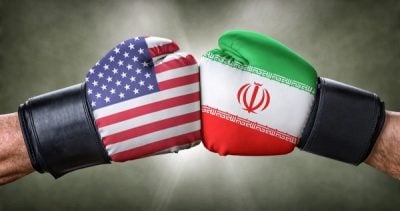The Injustice of Economic Warfare

The AP reports on the harmful effects of sanctions on the availability of medicine in Iran:
“Our biggest concern is that channels to the outside world are closed,” said Dr. Arasb Ahmadian, head of the Mahak Children’s Hospital, which is run through charity donations and supports some 32,000 under-16 children across Iran.
The banking sanctions have blocked transactions, preventing donations from abroad, he said. Transfers of money simply fail, including those approved by the U.S. Treasury.
“Indeed, we are losing hope,” said Ahmadian. “Medicines should be purchasable, funding should be available and lines of credit should be clearly defined in the banking system.”
The doctors that need imported medicines for treating their patients understand that sanctions are responsible for cutting off their access to these essential supplies. The patients that are deprived of their life-saving medications understand that they are forced to do without their medicine because of U.S. policy. If channels to the outside world have been closed, the Iranians affected by this know who is responsible for closing them, and it is clearly our government that does this to them. When some ghoulish hard-liner boasts that the sanctions are “working,” these are the people that are suffering and dying for the sake of their vendetta. Sanctions kill, and their first victims are the sick and vulnerable.
The Trump administration knows about the problem, but there is no intention of fixing it. The head of the Iran Action Group, Brian Hook, has previously said,
“The burden is not on the United States to identify the safe channels. The burden is on the Iranian regime to create a financial system that complies with international banking standards to facilitate the sale and provision of humanitarian goods and assistance.”
The reality is that no one can do business with Iran’s banking system without running the risk of violating sanctions, and very few are willing to take that chance. The report mentions this:
While the United States insists that medicines and humanitarian goods are exempt from sanctions, restrictions on trade have made many banks and companies across the world hesitant to do business with Iran, fearing punitive measures from Washington. The country is cut off from the international banking system.
The administration knows perfectly well that the sanctions have closed off safe channels for humanitarian goods, and they don’t care. When pressed to identify those channels, they shrug and say that it’s not their problem. The administration couldn’t care less about the Iranians whose medicine they are blocking, and instead of doing anything that might reduce the harm that they are doing to the Iranian people they just shift the blame.
Critics of the sanctions focus on the effects of sanctions on the ability to acquire humanitarian goods, but we shouldn’t forget that the U.S. is unjustly blocking legitimate commerce of all kinds with Iran. The U.S. is interfering with and destroying Iran’s economy, and the sanctions are inflicting widespread misery by wrecking the currency, obliterating their savings, driving small businesses into bankruptcy, and throwing people out of work. The humanitarian exemptions don’t work, but the economic war as a whole is a gross injustice and abuse of U.S. power. Our government is committing a terrible crime against the people of Iran with this economic war, and it has to be stopped.
*
Note to readers: please click the share buttons above or below. Forward this article to your email lists. Crosspost on your blog site, internet forums. etc.

